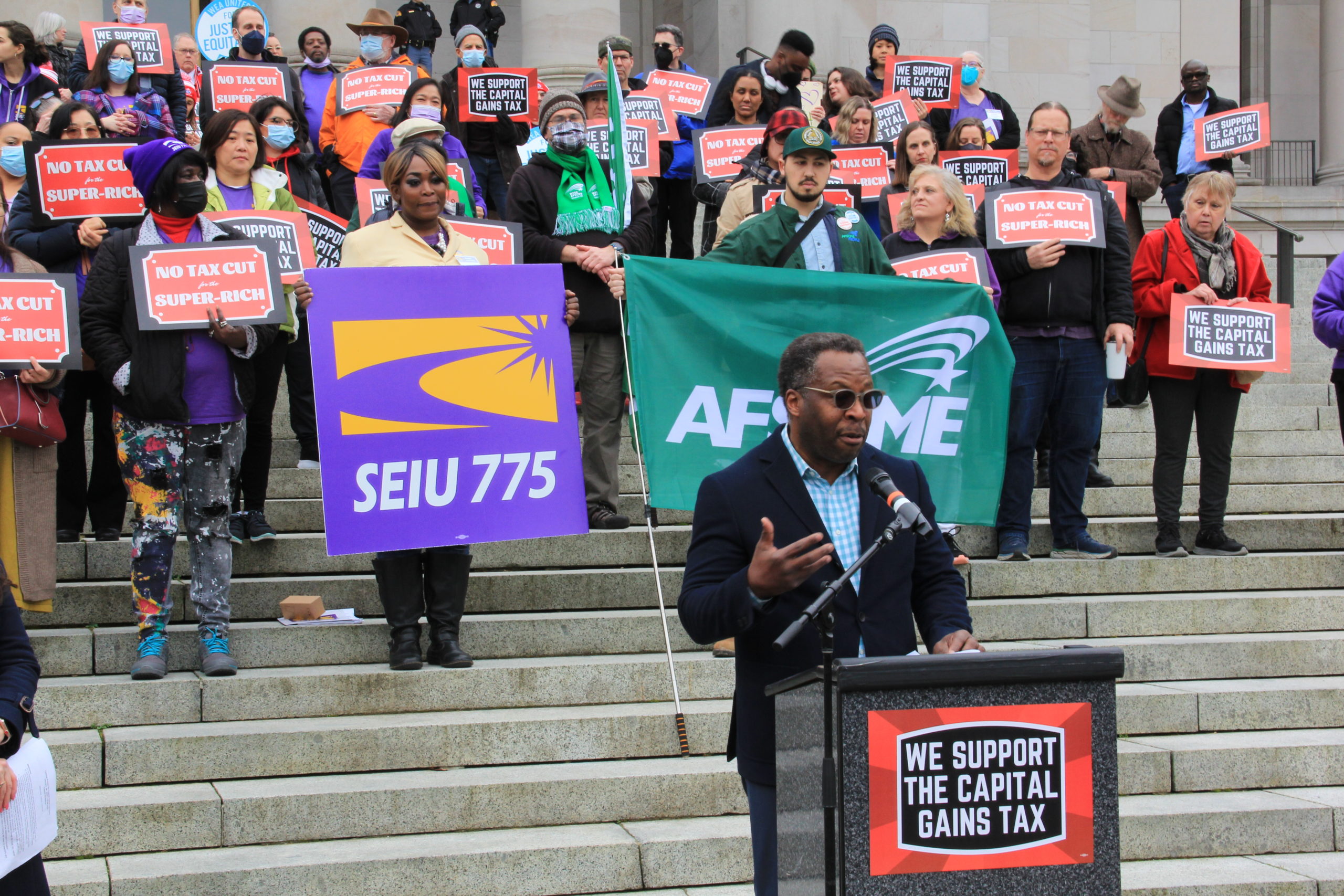Olympia, WA: Parents and children’s advocates are celebrating today’s Washington State Supreme Court decision approving $500 million per year in new funding for child care and education through a capital gains tax on ultra-millionaires and billionaires.
The Court ruled that the excise tax on massive capital gains is constitutionally valid.
“Millions of students, whether in pre-school, high school, or technical college, will directly benefit from the extra $500 million per year raised by this tax on the ultra-rich. With passage of the capital gains tax, our state went from being one of the most regressive tax systems in the country to one that promises to be more balanced. There’s more work to be done to ensure that millionaires and billionaires pay what they owe in taxes, and take the pressure off working- and middle-class families.”
– Dr. Stephan Blanford, Executive Director of Children’s Alliance, Seattle Times Oped Author
The Washington Supreme Court decision overturns a Douglas County judge’s earlier ruling in Quinn v Washington, a case brought by a small handful of ultra-millionaires. The 7% capital gains tax on stock sales’ extraordinary profits exceeding $250,000 annually does not apply to real estate, retirement accounts like IRAs, family-owned small businesses, and farms, among other things. It impacts just the wealthiest among us; only 0.2% of Washingtonian taxpayers will see enough profits to pay this tax.
“We applaud the Court for seeing through this delay tactic by ultra-millionaires to avoid paying what they owe for Washington’s child care, pre-schools, and other education programs. We have a long way to go, but when we insist that everyone — including the wealthiest Washingtonians — pay what they truly owe in taxes — we begin to undo decades of racism and disinvestment that hurts families, communities, and small businesses.”
– Treasure Mackley, Executive Director of Invest in WA Now, Everett Herald oped author
“All wealthy people need to pay more taxes – and I should know, I’m one of them. To those who say the new state capital gains tax on stock profits bigger than $250,000 will somehow drive away our wealthiest residents – that’s not how it works. Wealthy people move to, and stay in, places that have great schools and universities, clean air and water, healthy food, and a vibrant culture. Those who’ve done extremely well in Washington have a responsibility to act together to invest in our state and our communities.”
– Sharon Chen, Progress Alliance board member, amicus brief signer, Spokesman Review oped author
The capital gains tax increases funding for the Education Legacy Trust Account, which supports child care, pre-schools, special education, and community and technical colleges; it also funds the Common School Construction Account, which helps with renovating, repairing, and building schools.
More background information
The Washington State Supreme Court recently ruled in favor of allowing the Washington Department of Revenue to move with issuing rules, providing guidance to taxpayers, and rolling out its website and tax payment mechanisms before the capital gains tax due date of April 18, 2023. A Washington State Supreme Court hearing on the lawsuit challenging childcare and education funding, Quinn v. Washington, is scheduled for January 26, 2023 at 9:00AM and a final decision is expected months later.
Earlier this year a trial court in Douglas County ruled in favor of the millionaires behind Quinn, which is attempting to eliminate $500 million per year in education funding raised from a 7% capital gains tax on extraordinary profits from stock sales exceeding $250,000.The capital gains tax increases funding for the Education Legacy Trust Account, which supports child care, pre-schools, special education, and community and technical colleges; it also funds the Common School Construction Account, which helps with renovating, repairing, and building schools.
